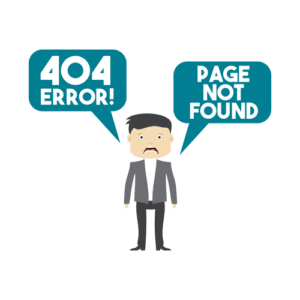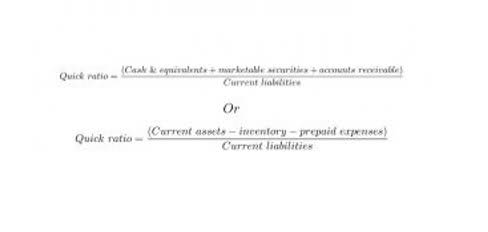
This integration allows for automatic tracking of sales and expenses, expense categorization, and tax calculations, saving time and improving accuracy. Shopify bookkeeping isn’t just about crunching numbers; it’s the lifeline of your eCommerce venture. Bookstime In this blog, we’ve uncovered the fundamentals and why it’s crucial for your business’s financial health. We’ve shared nine best practices to streamline your bookkeeping for shopify processes, discussed the challenges you might encounter, and provided insights into verifying tax calculations.
How do I do bookkeeping for my ecommerce business?

Many Shopify businesses start by managing their finances using spreadsheets, which can be an effective solution in the early stages. Spreadsheets allow for basic tracking of income, expenses, and inventory, providing a simple and familiar tool for bookkeeping. However, as your business grows, the limitations of spreadsheets become apparent. Staying compliant with tax regulations is critical for avoiding fines and legal issues. This includes correctly categorising products, understanding nexus laws, and filing taxes in every jurisdiction where you have sales tax obligations. Regular reviews and updates to your tax settings on Shopify help maintain compliance.
- Sharing reports with your bookkeeper can be done through various methods, and the choice depends on your preferences, security considerations, and the convenience for both parties involved.
- You don’t need to be an accountant to record transactions and expenses.
- The Cost of Acquiring a Customer (CAC) measures the total cost incurred to acquire a new customer, including marketing and sales expenses.
- Small business accounting involves tracking, measuring, and organizing your business finances.
- Most people start a Shopify business because they have a great product to sell.
Profit & Loss Statement
It offers a host of money management features including unlimited users, double-entry bookkeeping, and budgeting support. You can also customize your dashboard to review all your ecommerce metrics at once. Using best accounting software for Shopify and a Shopify accountant enhances efficiency and accuracy.
Potential Problems Faced in Shopify Accounting

Business accounting requires keeping track of all of a company’s transactions, inventory, and financial data. This includes metrics like cash flow and gross profits, balance sheets, and profit and loss (P&L) statements. AccountEdge is a comprehensive accounting software solution designed for small to medium-sized businesses. It offers powerful features for managing finances, payroll, and inventory. For Shopify store owners, AccountEdge simplifies Shopify Bookkeeping by syncing shopify bookkeeper eCommerce sales and providing detailed reports, making it easier to track and manage financials effectively.
Learn how to streamline your small business’s bookkeeping processes with these practical tips and tricks. You might start with a simple spreadsheet to manage your books, but your financial needs will grow with your business. As you scale, consider more advanced solutions like QuickBooks or Bench. Before taking any loan, calculate your return on investment by comparing your expected financing expenses, projected new revenue, and interest costs. You can use our business loan calculator to make sure the funding will benefit your business in the long run.
- Failing to do so can result in inaccuracies in your financial data, leading lenders and potential investors to refuse to work with you.
- Tracking income and expenses can become complicated as your business grows.
- Understand your tax obligations based on your location and the jurisdictions where you sell your products.
- These platforms automatically track sales, expenses, and taxes, reducing the need for manual data entry and minimizing errors.
- A virtual bookkeeping assistant can handle this process by comparing your bank statements with the transactions recorded in your accounting software.
Not only do you need to keep track of what products you have in stock, but you also need to be able to forecast future demand and plan your ordering accordingly. Fortunately, there are a number of great inventory management tools available to Shopify users. No matter which tool you choose, integrating tax tracking into your Shopify accounting and bookkeeping will save you time and money and help you avoid errors. TaxJar automatically calculates, files, and pays your sales tax for you, and it integrates with Shopify to make the process as simple and contribution margin seamless as possible.

Consider your current budget vis-a-vis expected growth
The foremost action for error-free accounting is to pick the right Shopify accounting software. You should pick the software based on your company size (small, medium, large), scale of operation (one supplier/product or multiple), accounting method, and expectations. We know firsthand that accounting is rarely anyone’s favorite part of running an e-commerce business. Shopify provides several accounting reports inside its dashboard’s analytics section.

Hiring professionals to handle your bookkeeping alleviates this stress, allowing you to focus on what you do best – running your business. While not as sexy, it’s a must to stay atop the latest changes and trends. Keep your business journal, ledger, and other records in a safe and secure place. If you have a bookkeeper and employees, establish rules and procedures for access and security. Regularly review the ledger to ensure the sum of debits on the left side equals the sum of credits on the right. If the debits and credits are not equal, it suggests there’s an error needing to be corrected.
